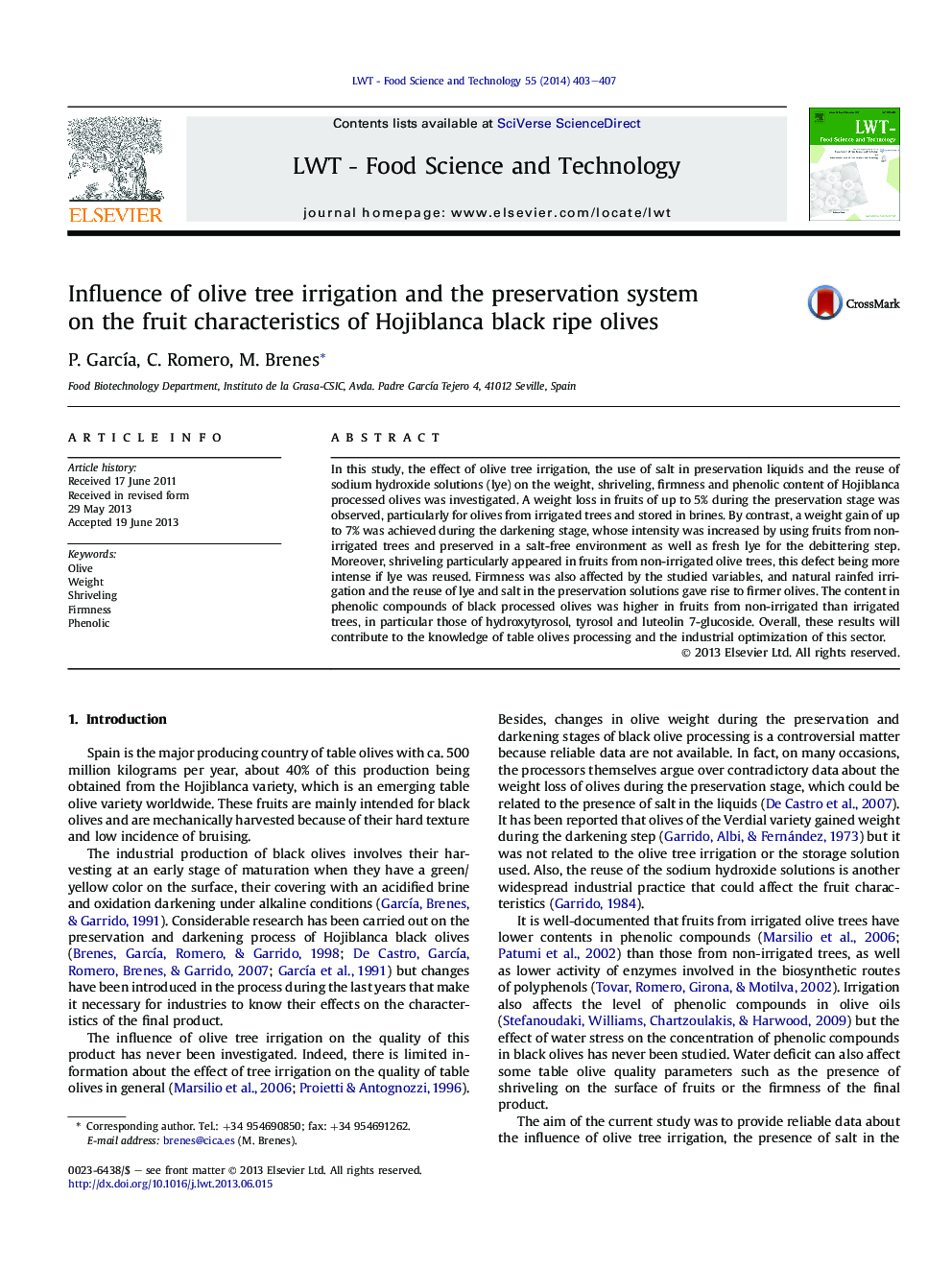| کد مقاله | کد نشریه | سال انتشار | مقاله انگلیسی | نسخه تمام متن |
|---|---|---|---|---|
| 6404005 | 1330898 | 2014 | 5 صفحه PDF | دانلود رایگان |
- Black olives lose weight during their preservation stage and gain weight during the darkening process.
- Olives from non-irrigated trees have strong texture, more shriveling and polyphenol content than those from irrigated trees.
- We observed that olives preserved in brine possess better texture than those stored in a salt-free solution.
In this study, the effect of olive tree irrigation, the use of salt in preservation liquids and the reuse of sodium hydroxide solutions (lye) on the weight, shriveling, firmness and phenolic content of Hojiblanca processed olives was investigated. A weight loss in fruits of up to 5% during the preservation stage was observed, particularly for olives from irrigated trees and stored in brines. By contrast, a weight gain of up to 7% was achieved during the darkening stage, whose intensity was increased by using fruits from non-irrigated trees and preserved in a salt-free environment as well as fresh lye for the debittering step. Moreover, shriveling particularly appeared in fruits from non-irrigated olive trees, this defect being more intense if lye was reused. Firmness was also affected by the studied variables, and natural rainfed irrigation and the reuse of lye and salt in the preservation solutions gave rise to firmer olives. The content in phenolic compounds of black processed olives was higher in fruits from non-irrigated than irrigated trees, in particular those of hydroxytyrosol, tyrosol and luteolin 7-glucoside. Overall, these results will contribute to the knowledge of table olives processing and the industrial optimization of this sector.
Journal: LWT - Food Science and Technology - Volume 55, Issue 1, January 2014, Pages 403-407
